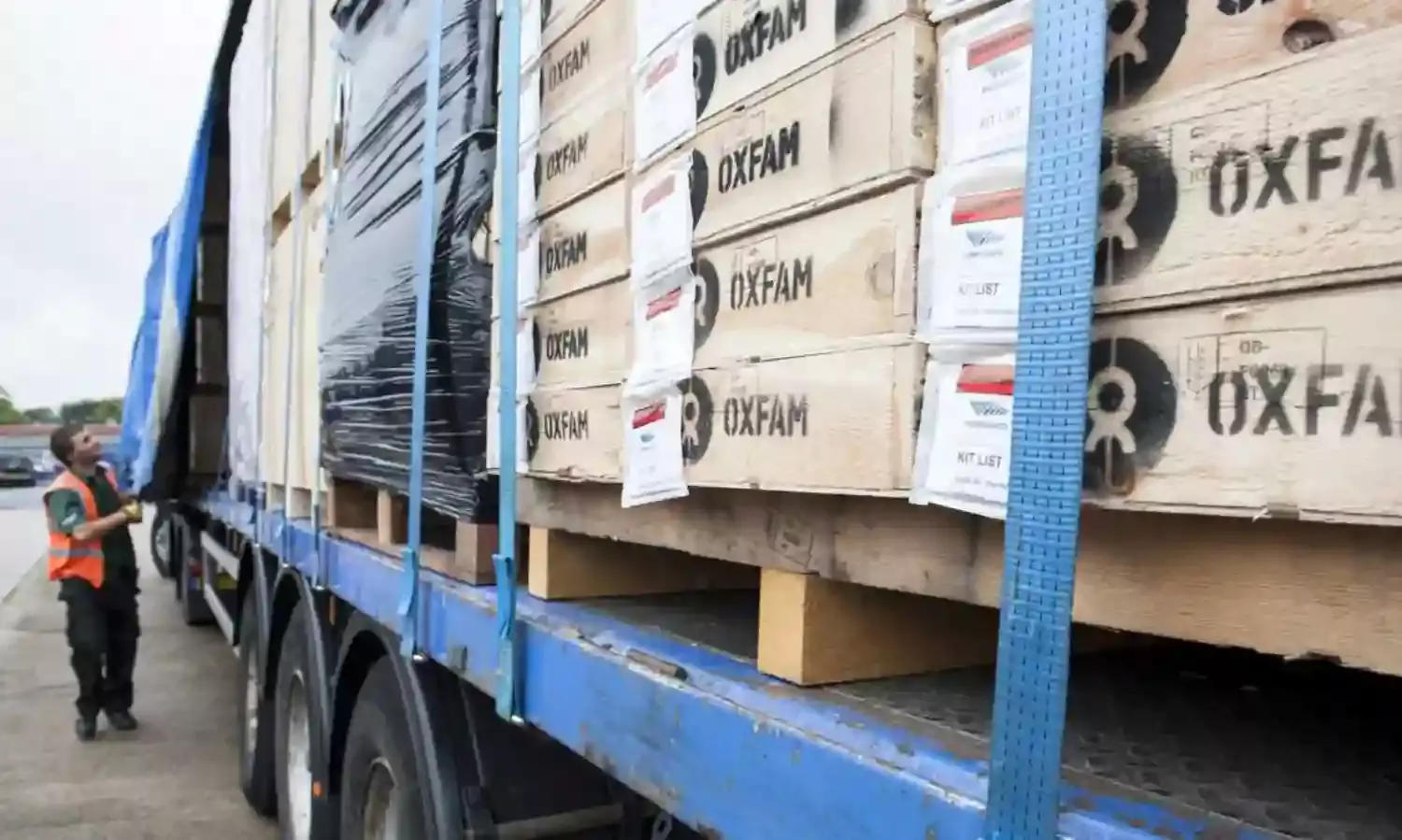Oxfam Scandal: Raise the Ethical Bar, But Don't Throw Out the Baby With the Bath Water
Exploitation follows from an attitude of superiority and entitlement, coming from race, class&gender;

Sexual harassment has gone from placards and hashtags to mainstream headlines in the last year, and that is an unmitigated good, because this transforms public attitudes, making it harder every day to stigmatise survivors or to absolve perpetrators.
In this season of public outrage, a 2011 case has come to light—some Oxfam staff in Haiti were found to have brought sex workers to their official residence. Oxfam investigated and the staffers resigned (one of them admitting to the charges during the investigation), but the same people have since been hired by other aid agencies and continue to serve in the same field, with access to vulnerable populations.
One of them has repeated this behaviour in Liberia, jeopardising the work of another project. Similar behaviour was also reported at Oxfam in Chad and South Sudan.
Oxfam set up a Safeguarding Team and a confidential whistleblower line in response. In October 2017, they created a Code of Conduct and a Global Safeguarding Team. A recent statement by Winnie Byanyima states that Oxfam stands “with the women and girls who were exploited and to ensure that sexual misconduct is rooted out of our organization.”
Following Oxfam, Save the Children, International Rescue Committee and Doctors without Borders have been accused of similar ‘cover-ups.’ Haiti’s President made a statement alleging this was all too common.
Since the public has come to know of these cases, Oxfam has lost support on several fronts: its celebrity ambassadors, donors and also, Britain’s development secretary said that by not disclosing what happened, Oxfam has betrayed the British public and its beneficiaries by putting its own reputation first.
The Oxfam case has raised two separate sets of questions for civil society.
The first set relates to sexual exploitation in crisis and conflict situations. We are now familiar with at least three variations on this theme. The first is when humanitarian workers are responsible for or complicit in setting up exploitative relationships, such as calling in sex workers in a place where people have no homes, no food and few mean of survival. The issue is not sex work; it is exploiting people when they may not have the ability to refuse.
The second is of peace-keepers in missions around the world, who are charged with sexual assault, sexual exploitation and even, trafficking. Finally, there is the age-old question of military and paramilitary forces and what are considered ‘the spoils of war.’ From comfort women to condoning sex shops outside army camps to sexual violence in conflict, the excuse that these are high-stress situations is common.
Sexual exploitation—and really, harassment is a euphemism—by those who have any kind of power, of people who are vulnerable in every way, is the crudest statement of what every feminist recognises—that sexual violence is about power, not lust, or stress, or unbearable attraction, or even anything to do with the victim-survivor.
The second set relates to the consequences for the aid sector itself. As government donors and individual supporters threaten to withdraw, who loses out? The immediate concern is that humanitarian programmes, already precariously funded relative to the needs they address, will shrink further, leaving large populations unserved. While emergency relief usually benefits from the immediate outpouring of sympathy, reconstruction and recovery programmes are hurt because donors move on to the next crisis.
But if they are not sustained, there is no resilience and the silver lining that crisis offers—the possibility of transformative reconstruction, is completely lost. Populations are left to suffer the same calamities, again and again.
The political climate of the day, around the world, complicates this. We now understand that most disasters follow vulnerability that is created by our own actions, policies and failure to create resilience. Humanitarian work, beyond the emergency, is then political, addressing these mistakes and failures explicitly. Humanitarian workers are also human rights workers, seeking transparency and accountability—pitting them squarely against government officials.
Every year, those who monitor freedom of speech and association around the world lament ‘shrinking political spaces.’ Every misdemeanour on the part of humanitarian and other civil society workers leaves the sector further open to government scrutiny and regulation at best, withdrawal of funding and worst, limitation of access. If governments were to use sexual exploitation and any sign of a cover-up, to limit a humanitarian agency’s access to its people in the name of protection, how hard would it be to fight that, and who would really suffer?
Obviously, this is not to argue that we must ignore the ‘bad apples.’ As some point out, it is this very attitude at the highest levels of international organisations that has brought us to this pass—where people can fan out into the world in the name of helping others, but feel free to exploit them for pleasure or profit.
Rather, the solution is to raise the ethical bar—not just through rigorously enforced external criteria such as gender sensitisation workshops held or attended; whistleblower and redressal mechanisms; vigilant background checks—but also by finding ways to read a person’s values and ethical sense, and to reinforce that.
What Gandhi sought in a satyagrahi applies to all public service: a commitment to truth and non-violence; simplicity in personal life; and a devotion to service. For all the effort we expend on developing external checks and balances, the way forward might depend on the sector bringing in those who want to serve and support rather than rescue and deliver the vulnerable.
Exploitation follows from an attitude of superiority and entitlement, coming from race, class and gender; this attitude could be the downfall of over a century spent building ways to cooperate and help each other.

